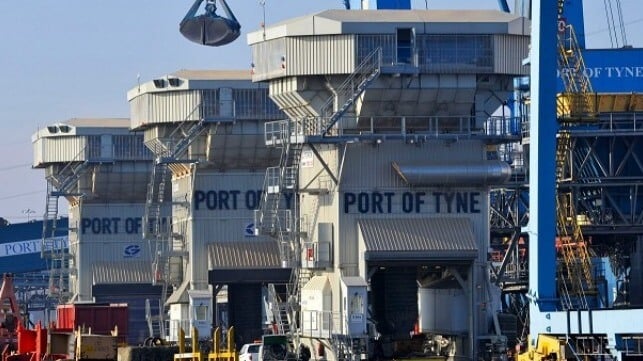UK Proposes New Port Reforms to Aid Development and Investment

The UK government presented a new set of proposed reforms to align its port sector for future growth. Maritime Minister Mike Kane presented to parliament on Wednesday, June 4, a draft of an amended national policy statement for ports (NPSP), and launched a public consultation which will close on July 29 for the plan document.
The government wants a review current of the NPSP which was adopted in 2012 highlighting that new infrastructure priorities are arising in ports across the UK. The proposed revisions aim to streamline the planning process for ports and expedite the approval processes. This will include clearly outlining the existing needs for port facilities and how to design applications to meet the latest requirements to avoid process delays.
One example offered for the updated proposal will more clearly outline how ports can meet obligations on noise and emissions, increasing the likelihood of achieving planning approvals and saving time and money. Greater clarity, fewer delays, and reduced costs will give ports the confidence they need to expand, emphasized the Department for Transport.
These plans tie in with wider reforms, including the Planning and Infrastructure Bill, and will see ports going further and faster with commercial projects. The reforms are coming at a time when the UK is investing in infrastructure upgrades in its major ports.
Last month, the UK announced a $47 million investment in the Port of Liverpool to develop a new deep-water terminal. Another $1 billion is being invested in the Port of Tyne to develop state-of-the-art infrastructure.
“A refreshed ports policy statement is welcome recognition from the government of the value of port development and expansion to the UK’s future prosperity. We hope it will speed up planning processes, delivering on shared industry and government economic growth ambitions,” said Richard Ballantyne, Chief Executive of the British Ports Association (BPA).
Last year, BPA warned that delays in approving port infrastructure upgrades put billions of pounds of investment at risk. The association, whose members own and operate ports in the UK, complained of the slow process of getting project approvals. In some cases, ports had to wait for almost four years for approvals.

that matters most
Get the latest maritime news delivered to your inbox daily.
Alongside the proposals, the government also published the UK’s port freight demand forecasts, revealing the need for long-term planning for the shipping sector. The forecast covers the years 2024 to 2050. It projects that UK port traffic will grow by 1.2 percent by 2035 and 7.8 percent by 2050. That represents an increase from 420.6 million tons in 2023 to 425.8 million tons in 2035 and to 453.5 million tons in 2050.
The growth will mostly be driven by ro-ro cargo, containers, and dry bulk freight. However, liquid bulk traffic is forecast to significantly decrease, by 63.3 percent, from 169.3 million tons in 2023 to 62.1 million tons in 2050. The decrease is likely to come from the net zero transition affecting crude oil and oil products.
